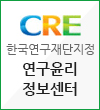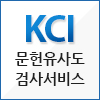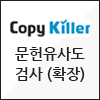The purpose of the study is to examine learning styles of students in hospitality and tourism programs in Korea and
the US. In addition, the study compares cultural values of the two countries and applies results of different cultural values
of the two countries to explain differences in learning styles. The results show that American students were more likely
to be individualists; whereas Korean students are less tolerant of the ambiguous and the unpredictable. Korean students are
likely to perceive their society as more masculine than their counterpart, American students. In addition, Korean students
are evenly distributed between active and reflective learners while more American students are active learners. More
Korean students are likely to be global learners; whereas more American students are sequential learners. Findings of this
study not only enrich the literature of learning styles and cultural values, but also provide practical implications for
hospitality and tourism programs and educators in higher education to guide proactive engagement in global educational
issues.
key words : Learning styles, Cultural values, America, Korea, hospitality, Tourism students
the US. In addition, the study compares cultural values of the two countries and applies results of different cultural values
of the two countries to explain differences in learning styles. The results show that American students were more likely
to be individualists; whereas Korean students are less tolerant of the ambiguous and the unpredictable. Korean students are
likely to perceive their society as more masculine than their counterpart, American students. In addition, Korean students
are evenly distributed between active and reflective learners while more American students are active learners. More
Korean students are likely to be global learners; whereas more American students are sequential learners. Findings of this
study not only enrich the literature of learning styles and cultural values, but also provide practical implications for
hospitality and tourism programs and educators in higher education to guide proactive engagement in global educational
issues.
key words : Learning styles, Cultural values, America, Korea, hospitality, Tourism students











